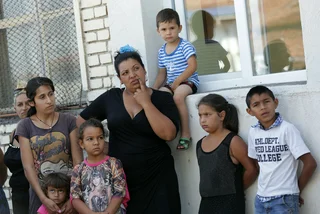A breakthrough is needed to ensure the equality and dignity of Roma people and people with disabilities, a Council of Europe representative said yesterday following a five-day visit.
“The Czech Republic should spare no effort to address the long-standing problem of the exclusion of Roma people and people with disabilities, and to ensure that they can live in equality and dignity,” Council of Europe’s Commissioner for Human Rights Dunja Mijatović said in a press release.
While there have been some positive developments, Mijatović said she still sees many of the same problems that her predecessors first identified two decades ago.
Roma continue to face discrimination in education, housing, employment, and their interactions with the police. Mijatović also noted a different approach to Ukrainian Roma compared with other refugees from Ukraine.
Access to equal education
One key concern was creating a more inclusive approach to education to ensure that children of all backgrounds and abilities, including Roma children and children with disabilities, can learn together.
Roma children still receive a separate and lower-quality education, according to Mijatović. “A real paradigm shift is necessary to move away from the focus on testing since this still acts as a tool of exclusion in the education system,” she said.
Sterilization compensation remains slow
Timely compensation for Roma victims of forced sterilization remains an issue, despite the government agreeing to a framework. Mijatović called for clear guidance on how applications are assessed and for speeding up the process so that victims would finally see justice.
Concerning people with disabilities, many continue to live in large-scale institutions. Efforts to switch to community-based support for people with disabilities should be redoubled and legal protections should be improved, she added.
Good intentions but a fragmented approach
Authorities were generally aware of the issues, but the responsibility for addressing them remained fragmented among state, regional, and local authorities.
“There are many good ideas and intentions that could really help Czech society to become more inclusive, but these need proper implementation and enforcement. Unfortunately, an important gap still exists here,” Mijatović said.
She also urged Czechia to ratify the Istanbul Convention and join the “gold standard in the protection of women and girls from violence against women and domestic violence.”
A review of human rights in Czechia by UN Human Rights Council (UNHRC) in January reached several of the same conclusions concerning Roma and the need to ratify the Istanbul Convention.












 Reading time: 2 minutes
Reading time: 2 minutes 






























